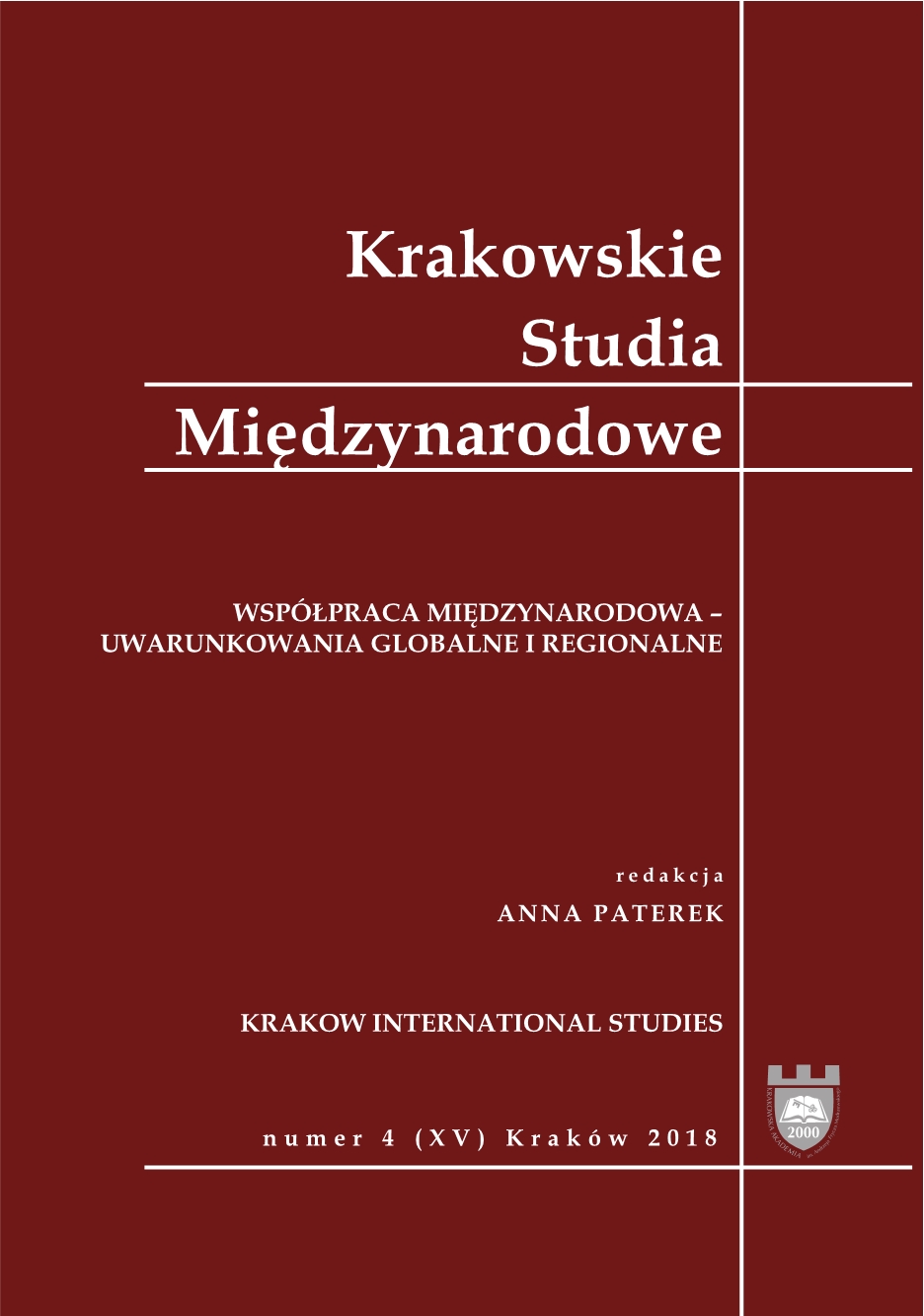Bliskowschodni proces pokojowy 25 lat po porozumieniu z Oslo – rola Unii Europejskiej
The Middle East peace process 25 years after the Oslo Accord – the role of the European Union
Author(s): Anna Diawoł-SitkoSubject(s): Peace and Conflict Studies
Published by: Oficyna Wydawnicza AFM Uniwersytetu Andrzeja Frycza Modrzewskiego w Krakowie
Keywords: European Union;Middle East peace process;Israel;Palestine;
Summary/Abstract: The aim of the article is to present the European Union’s commitment to resolve the Israeli-Palestinian conflict. 2018 is a good time to take stock of the role of the European Union and other regional and international actors in resolving the Palestinian issue. Currently, it is 25 years since the signing of the Oslo Agreement, 30 years after the declaration of independence announced by the PLO. A year earlier, 50 years have passed since Israel seized the Gaza Strip and the West Bank. The article assumes the thesis that the Israeli-Palestinian conflict is one of the main challenges for the EU’s foreign policy, is an inherent feature of the regional balance of power and without its regulation it is impossible to think about a lasting peace in the Middle East. Its implications are multidimensional and concern security, political dialogue, economic and social issues. The conflict also has an impact on the overall policy pursued by the Union towards the Mediterranean. The article is divided into five parts. The first presents the source, evolution and individual stages of the conflict from the end of the Second World War. In the second part, the implications of the provisions of the Oslo Agreement for the negotiation process were indicated. The third identifies the most important problems that prevent a lasting peace between Israel and Palestine. In the fourth part author shows the position of the European Union towards the conflict and a two-state solution, and bilateral cooperation with Israel and Palestine. The fifth part discusses the problems related to the involvement of the European Union in ending the conflict. The analysis carried out in this article is based on diversified sources, literature on the subject, in particular from 2015–2018, and the author’s own research. The study uses a critical, problematic approach, taking into account the behavior of the basic actors, important from the point of view of the discussed topic, and the following research methods were used: factor analysis, institutional and legal, content analysis and elements of the decision method
Journal: Krakowskie Studia Międzynarodowe
- Issue Year: XV/2018
- Issue No: 4
- Page Range: 121-138
- Page Count: 18
- Language: Polish

